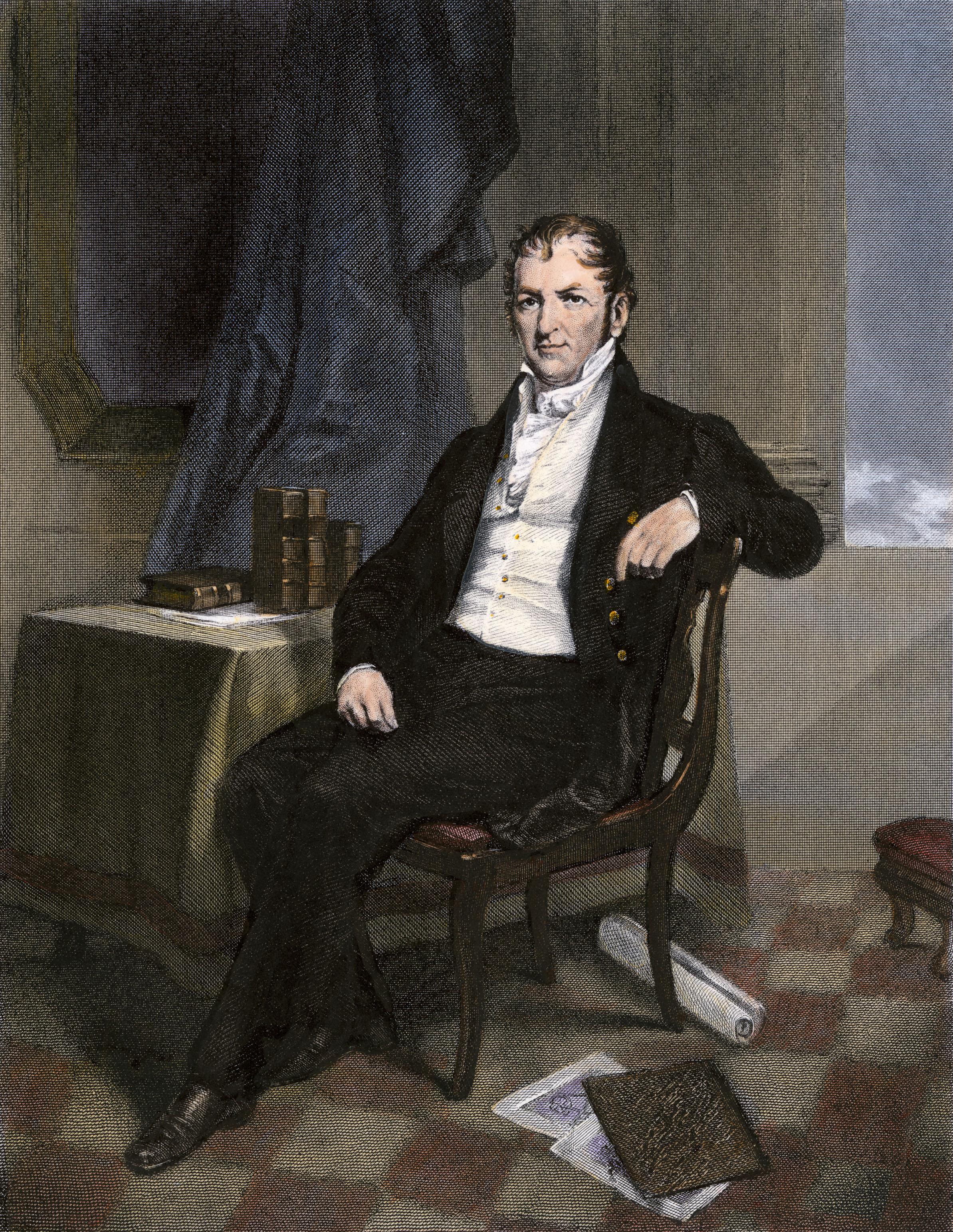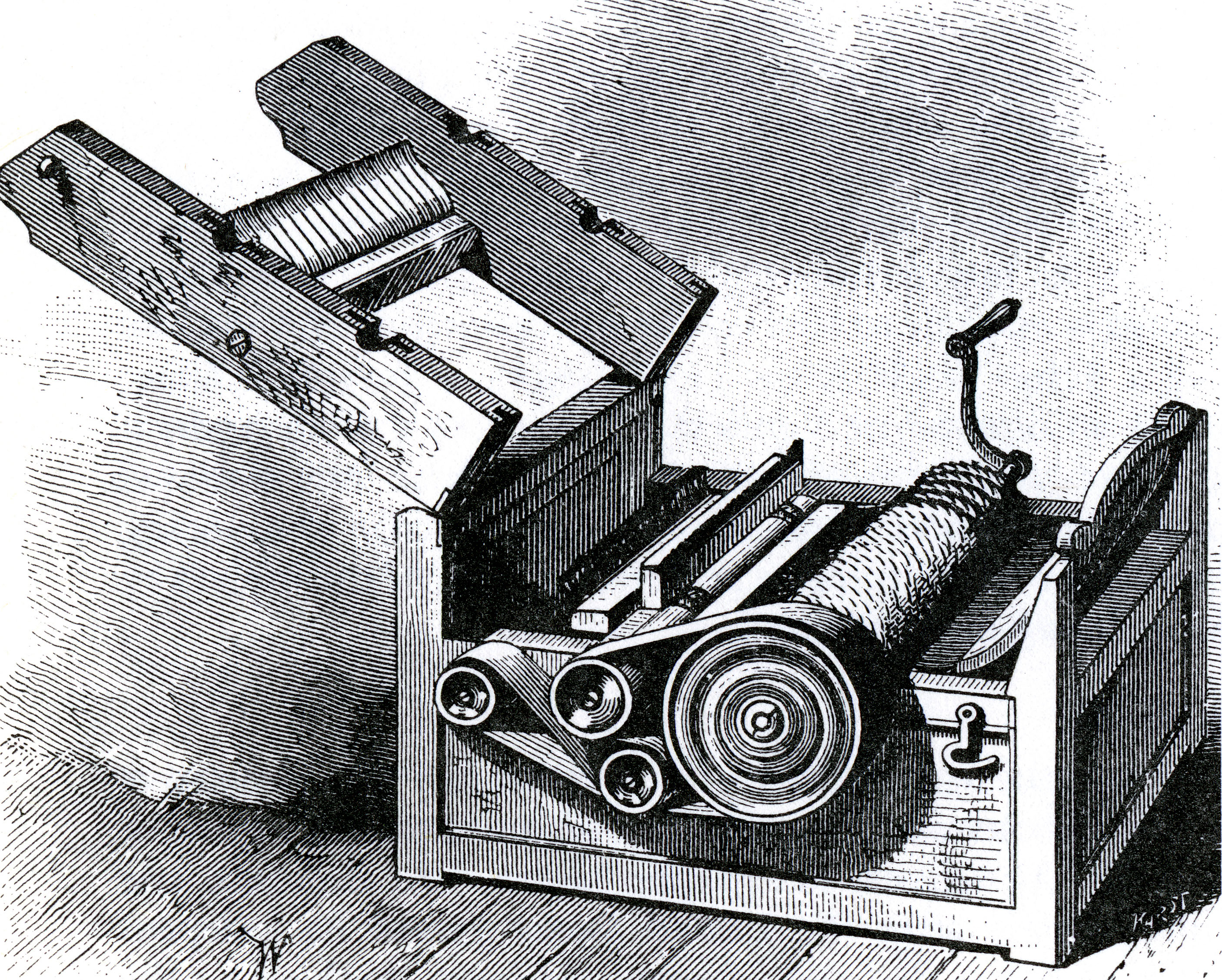Whitney, Eli (1765-1825), an American inventor, developed a machine called a cotton gin for separating the seeds from cotton fibers. His invention removed the seeds quickly and economically. It made cotton growing profitable and quickly helped the United States become the world’s leading cotton grower. Whitney also became a manufacturer of muskets and other weapons.
Early life.
Whitney was born on Dec. 8, 1765, in Westborough, Massachusetts. Even as a boy, he had mechanical skill. He made a violin when he was 12 and established a nail-making business when he was still a teen-ager. From 1783 to 1789, Whitney taught at a grammar school. He entered Yale College in 1789 and graduated three years later.
The cotton gin.
In 1792, Whitney went to Savannah, Georgia, to teach and study law. But he found that someone had taken the teaching job he expected to get. He then met Catherine Littlefield Greene, the widow of a hero of the Revolutionary War in America, General Nathanael Greene. She invited Whitney to be her guest while he studied law. Whitney wanted to be “worth his keep” and began fixing things around the house. His mechanical skill impressed her. One night, guests discussing green-seed cotton said they could not grow it profitably because of the time it took to clean. Mrs. Greene said, “Mr. Whitney can make a machine to clean it.” By April 1793, Whitney had built a cotton gin. It could clean as much cotton in a day as 50 people could working by hand.

In 1794, Whitney obtained a patent for his cotton gin. With the financial backing of a partner, Phineas Miller, Whitney began to manufacture cotton gins in New Haven, Connecticut. But soon the business had problems. It could not make cotton gins fast enough to meet the demand. In addition, other manufacturers began to produce improved versions of Whitney’s cotton gin. Whitney sued them and won several court cases. But his patent expired soon after, and the U.S. Congress refused to renew it. As a result, Whitney made little profit from his invention.
Arms manufacturer.
During the years he fought for his patent, Whitney also made arms for the U.S. government. In 1798, the Department of the Treasury gave him a contract to produce 10,000 muskets.

Whitney built a number of machines to help produce standard, interchangeable parts for the arms he was making. He was probably influenced to do so by the ideas of French and American thinkers. Some scholars credited Whitney with inventing a milling machine that made standard parts for weapons and that led to mass production. But no evidence exists that he actually invented such a machine or that he perfected the manufacture of interchangeable parts. However, he became the best-known promoter of this style of production, which became known as the American system of manufacturing. He died on Jan. 8, 1825.
